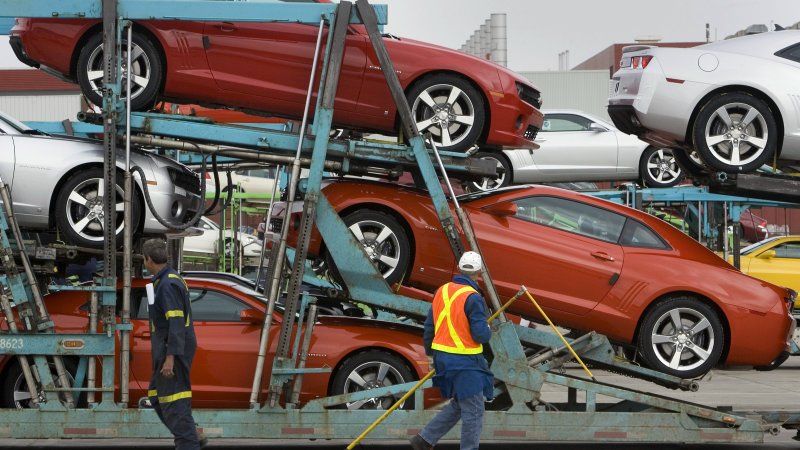The United States and Canada forged a last-gasp deal on Sunday to salvage a three-country, $1.2 trillion open-trade zone agreement with Mexico that had been about to collapse after nearly a quarter-century.
Here are some of the details in the agreement, which will change its name from NAFTA to the United States-Mexico-Canada Agreement (USMCA):
Automotive rules of origin
The deal set a 5-year transition period after the agreement enters into force for the regional value content requirement for autos to increase to 75 percent, from a current 62.5 percent. It requires 40 percent of vehicles' value to be made in high wage areas paying $16 an hour, requiring significant automotive production in the United States and Canada.
The pact also requires that vehicle manufacturers source at least 70 percent of their steel and aluminum from within the three countries.
The Washington Post cites economists who say these new rules will help some North American workers — however, they may push production of low-margin small cars out of North America because they would be too expensive to produce here. And the rules could also mean that automakers would be unable to afford to build as many cars here for export to China, the world's largest auto market. It will be more cost-effective to build those cars in Asia.
Autos side letter
A side-letter to the agreement showed that Trump preserved the ability to impose threatened 25 percent global tariffs on autos while largely exempting passenger vehicles, pickup trucks and auto parts from Canada and Mexico.
If Trump imposes so-called "Section 232" autos tariffs on national security grounds, Mexico and Canada would each get a tariff-free passenger vehicle quota of 2.6 million passenger vehicles exported to the United States annually, well above their current export levels.
Pickup trucks built in both countries will be exempted entirely.
Additionally, Mexico will get an auto parts quota of $108 billion annually, while Canada will get a parts quota of $32.4 billion annually in the event of U.S. autos tariffs.
Oil production
Reflecting the concerns of Mexico's incoming government that the agreement would limit the country's control over its oil resources, the deal states that Mexico has the direct, inalienable and imprescriptible ownership of all hydrocarbons in its subsoil.
Despite the strongly worded language, the energy chapter does not prevent foreign oil companies from producing oil in Mexico under a liberalization of the industry passed by the outgoing government.
Dairy
Canada agreed to provide U.S. dairy farmers access to about 3.5 percent of its approximately $16 billion annual domestic dairy market, Canadian sources said, adding that the Canadian government is prepared to offer compensation to its own dairy farmers hurt by the deal.
Under the agreement, Canada has agreed to eliminate its Class 6 and Class 7 milk categories and associated pricing schedules for skim milk, skim milk proteins and other components and ultrafiltered milk, within 6 months after the USMCA goes into force.
U.S. farmers said those schedules had effectively pushed them out of the Canadian dairy market.
The agreement will increase U.S. access to Canada's dairy market beyond Trans-Pacific Partnership levels, a senior Trump administration official said.
Dispute resolution
The deal will preserve a trade dispute settlement mechanism that Canada fought hard to maintain to protect its lumber industry and other sectors from U.S. anti-dumping tariffs.
No substantial changes appear to have been made to the Chapter 19 trade dispute settlement mechanism, nor the state-to-state dispute settlement.
However, the agreement limits investor-state dispute settlement to preferential treatment cases and certain sectors dominated by state firms, such as energy and telecoms and infrastructure.
Keeping Chapter 19 will not affect Washington's enforcement of anti-dumping and anti-subsidy laws, said a U.S. official.
Related News

